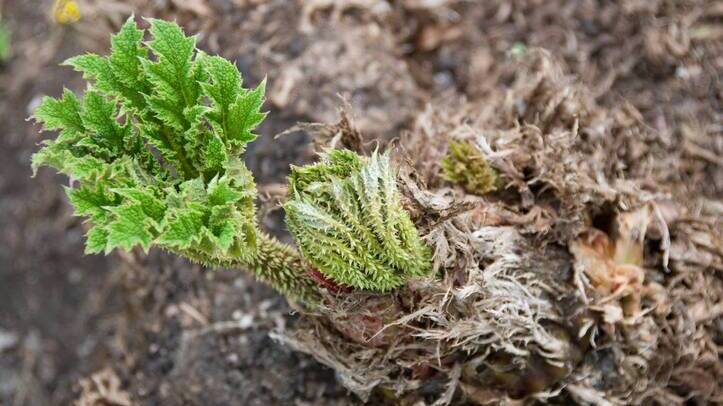Retailers who sell pond plants are being advised to stop selling plants named as ‘gunnera manicata’ (Brazilian giant rhubarb) owing to the danger of them being a hybrid crossed with a banned species.
A recent research paper published by the Royal Horticultural Society asserts that all G.manicata in trade is either misidentified G. tinctoria, which is banned from sale, or is a cross between G.manicata and G.tinctoria. Under the Invasive Alien Species (Enforcement and Permitting) Order 2019, sales of G. tinctoria is banned, and government department Defra has confirmed that these hybrid plants should therefore not be sold.
Trade association OATA is advising retailers not to sell any giant gunnera, advice that also includes gunnera × cryptica, which is the name of the hybrid plant. OATA recommends the following gunnera species are not sold: G.tinctoria (old name G.chilensis); G. × cryptica; G.manicata (old name G.brasiliensis).
OATA Chief Executive Dominic Whitmee said: “Our advice to retailers is to not stock or sell any giant gunnera species because, unless their suppliers can prove provenance, it may be a hybrid species.
“Defra has informed us that the cross of G.manicata and G.tinctoria is banned from sale because hybrids of a parent that is banned, in this case G.tinctoria, are also banned under the Invasive Alien Species (Enforcement and Permitting) Order 2019. Although, legally, G.manicata can still be sold, we advise it is removed from sale because it is highly unlikely to be pure and it is very difficult to accurately identify young plants.
“We are currently working with Defra to understand the invasive potential of the cross and whether trade restrictions are justified.”
The organisation is also urging the trade to report any examples of gunnera tinctoria on sale using the online reporting tool on the OATA website: https://ornamentalfish.org/what-we-do/advice-information/report-a-problem/



